#elliot s maggin
Explore tagged Tumblr posts
Text
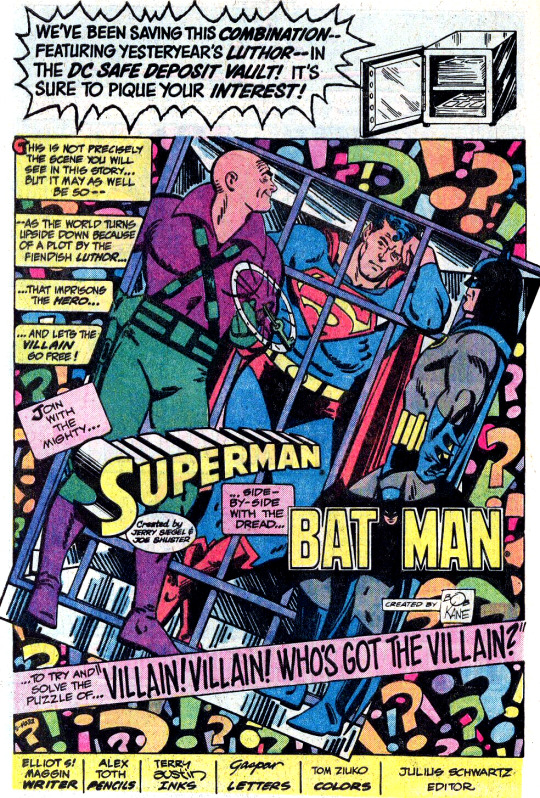


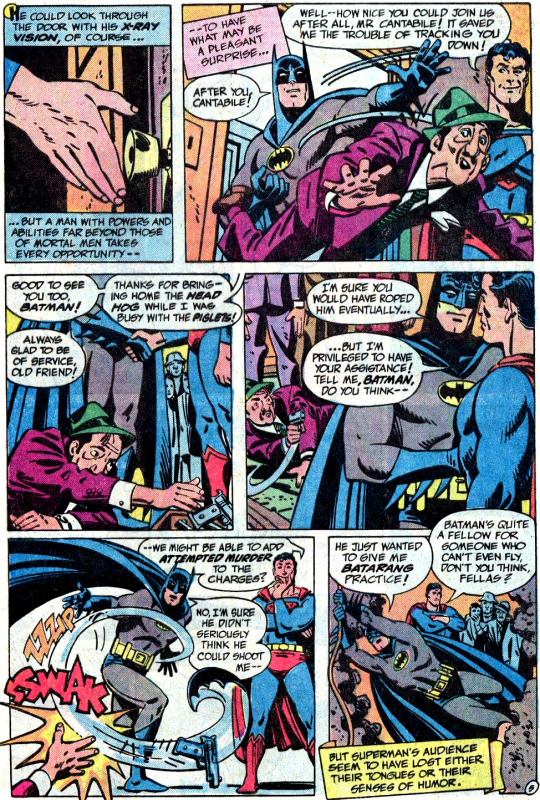
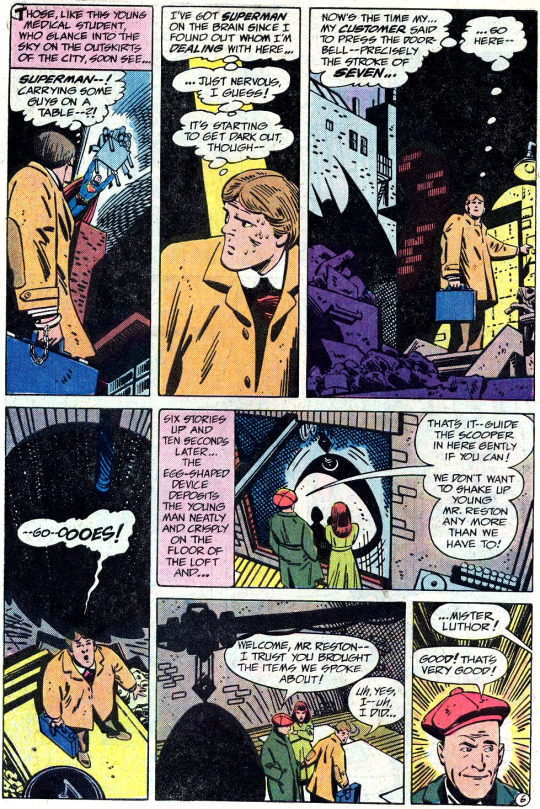
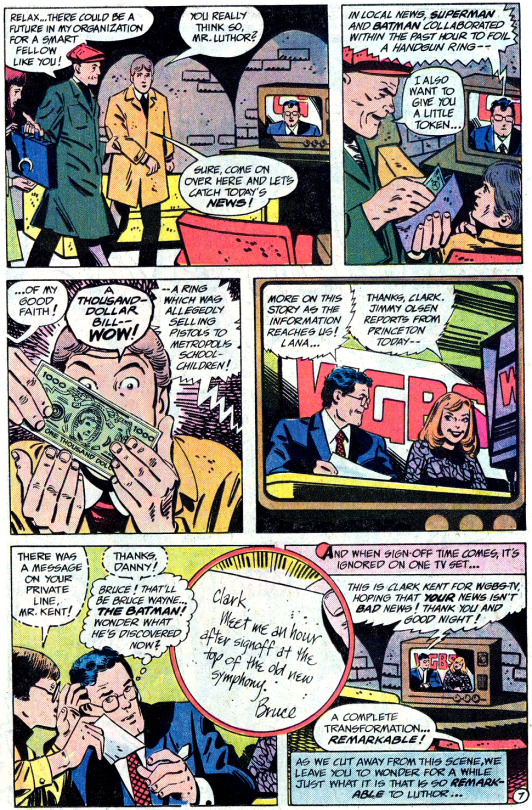


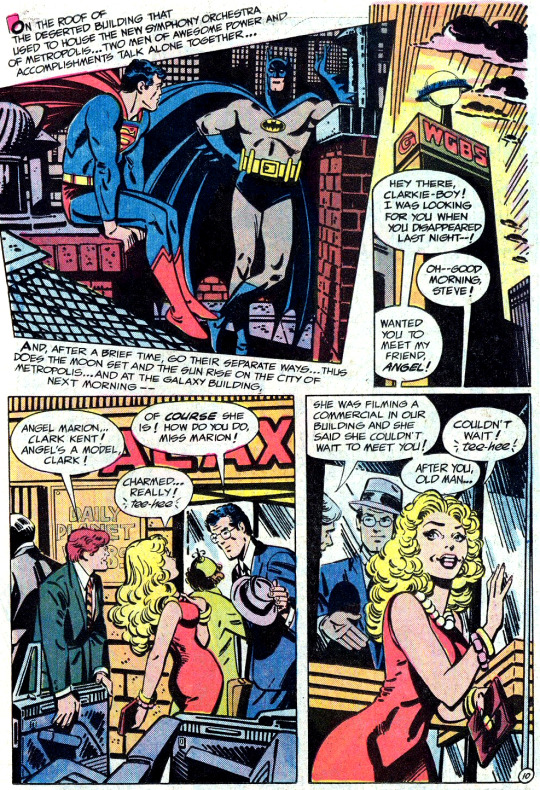
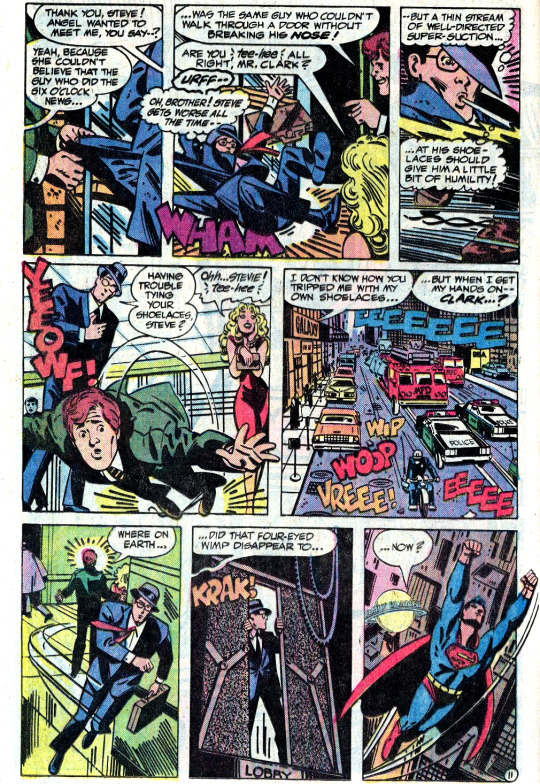
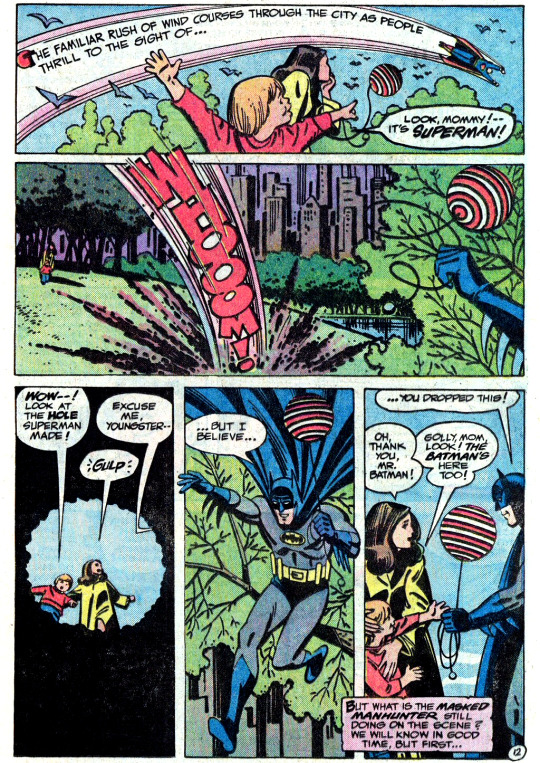
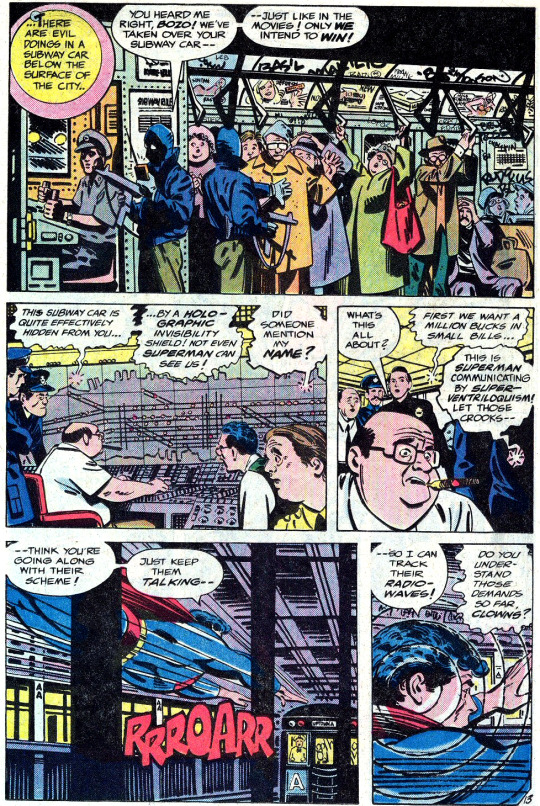

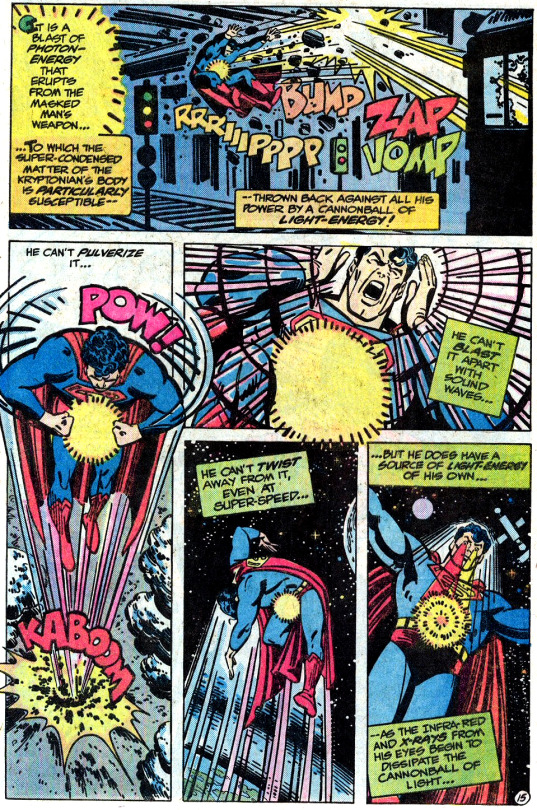
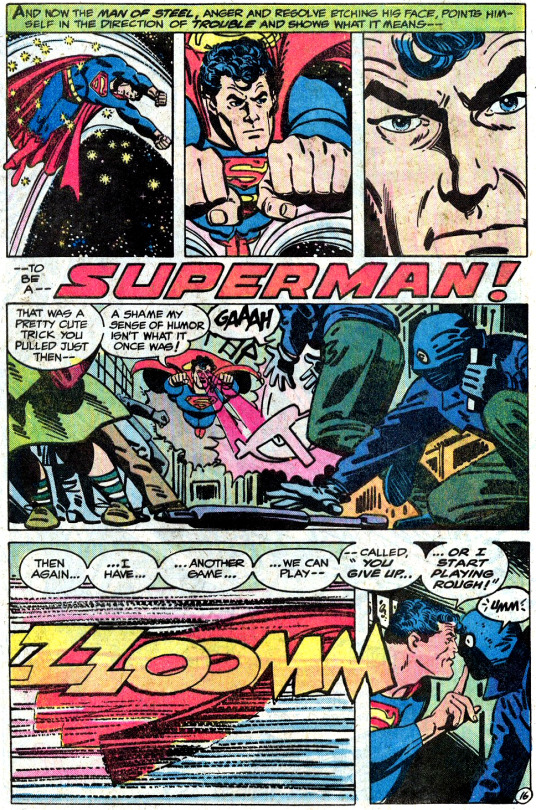

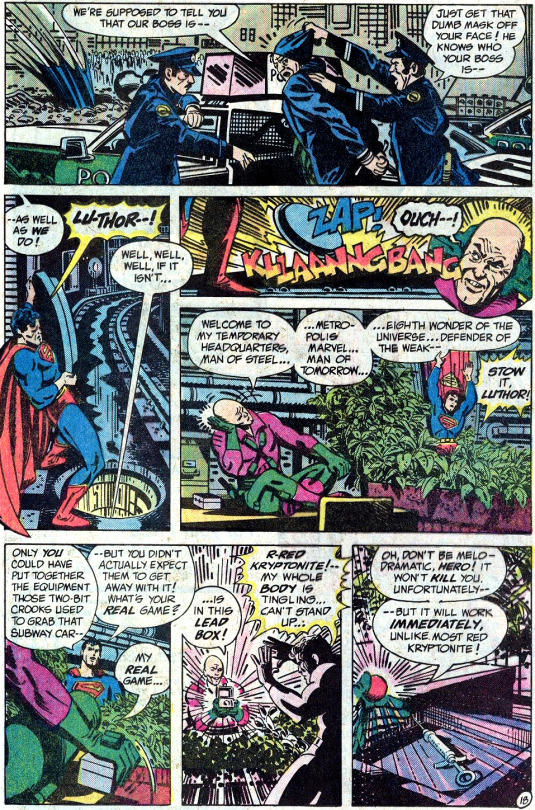

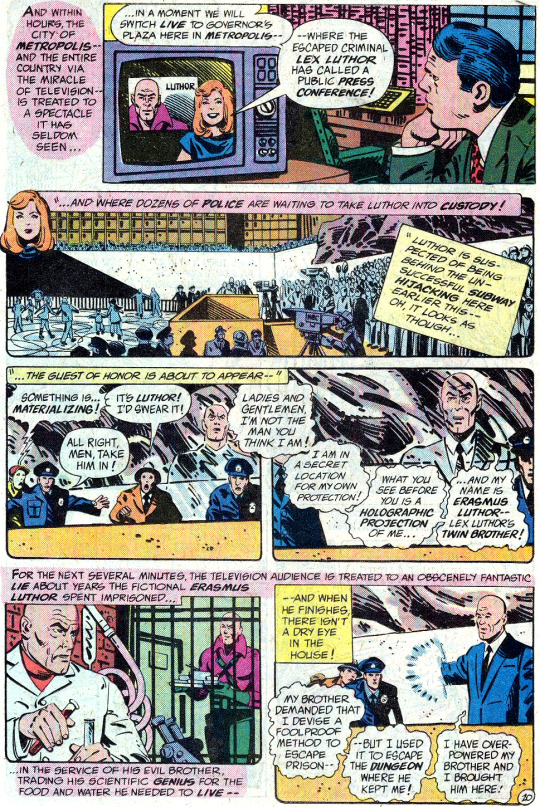
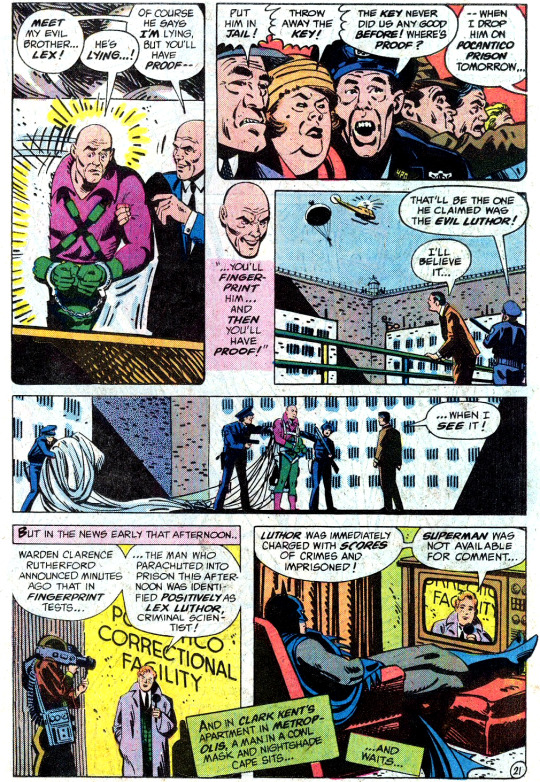
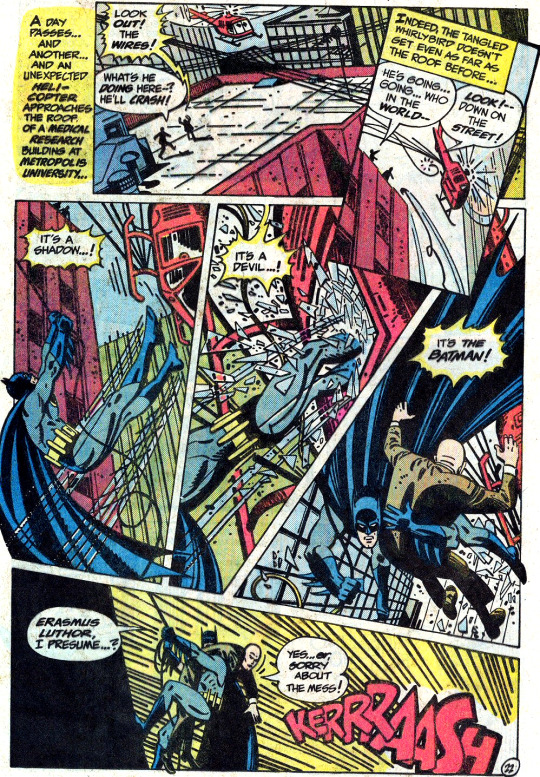
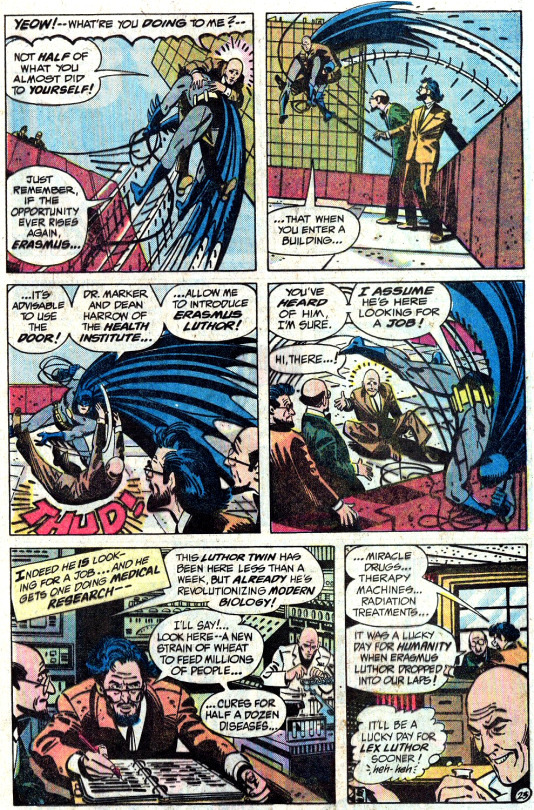
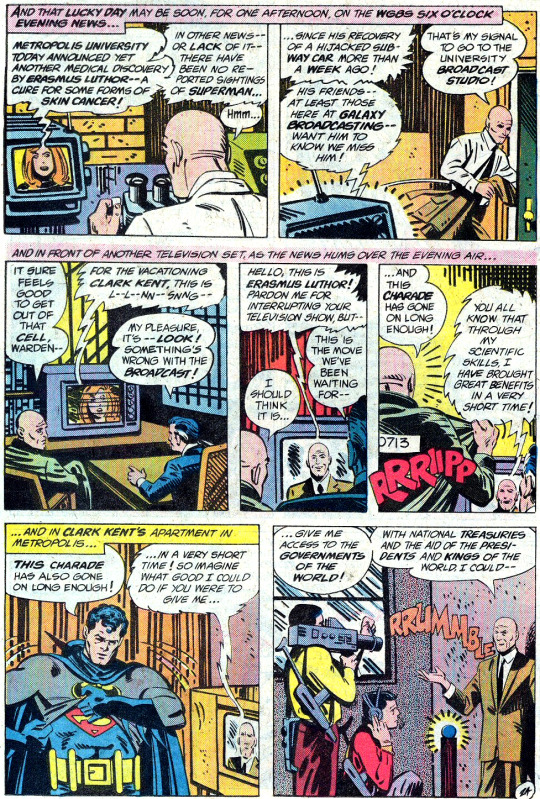
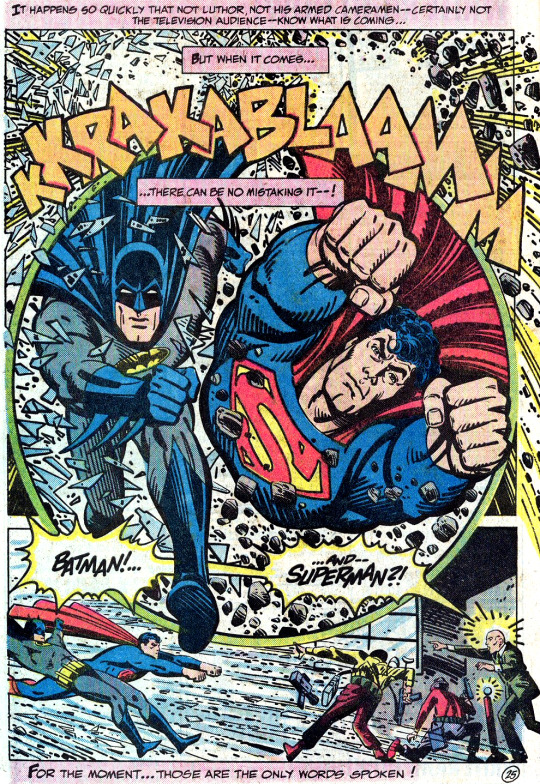

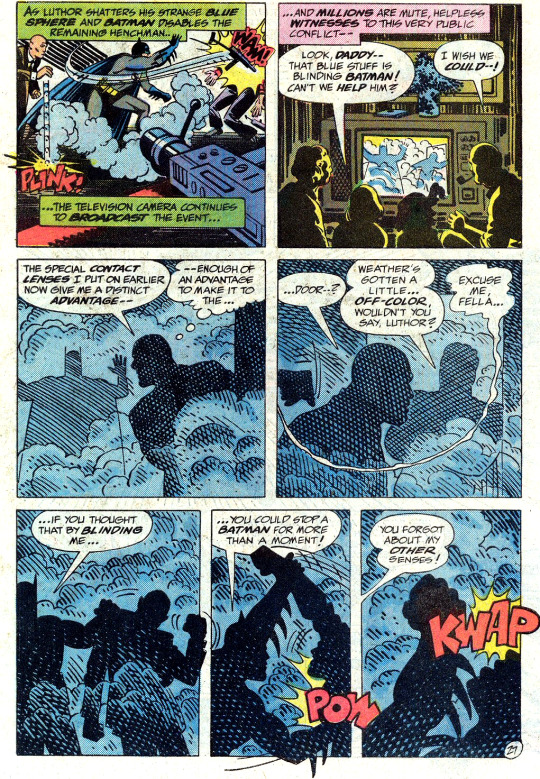
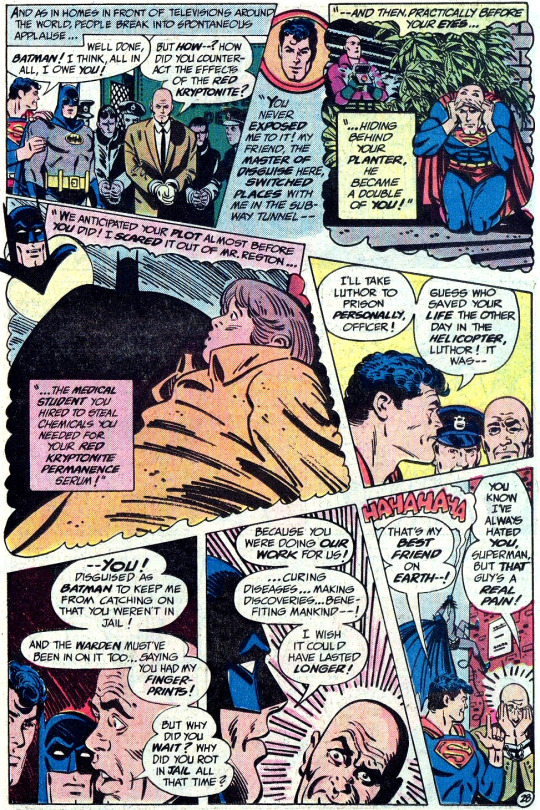

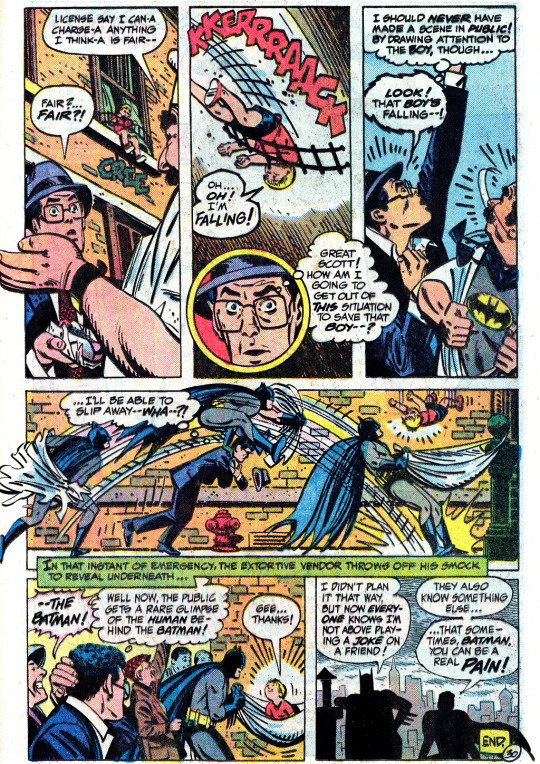
You know I've always hated you, Superman, but that guy's a real pain!
Superman (1939) Annual #9, with a cover date of 1983. Written by Elliot S! Maggin with art by legendary cartoonist Alex Toth.
#clark kent#superman#bruce wayne#batman#superman 1939#superman annual 9#alex toth#elliot s maggin#elliot s! maggin#terry austin#gaspar#gaspar saladino#tom ziuko#julius schwartz#julie schwartz#dc#dc comics#dcedit#comicedit#comicsedit#u can reblog#THE DIALOGUE GET THE HELL OUTTTTTTT I CANT STOP LAUGHING#LEGITIMATELY ONE OF THE GREATEST THINGS IVE EVER READ IN MY WHOLE LIFE
132 notes
·
View notes
Text
I find it funny how Joker and Lex Luthor both took something away from their personality swapping story. The Joker used his brief sanity to build a new hideout underneath his cell at arkham; while Lex Luthor is disappointed because he came this close to cracking the secrets of the universe! I guess he was right about insanity being close to genius... (Joker #7):


#lex luthor#the joker#joker dc#dc joker#dc villains#joker#dc#dc comics#comic books#reading comics#comics#comic#elliot s maggin#irv novick
11 notes
·
View notes
Text

January to April 2004. Fans of MY ADVENTURES WITH SUPERMAN would likely enjoy this poignant 2004 miniseries by Kurt Busiek and Stuart Immonen, about a young man named Clark Kent in a world very much like ours, where Superman is a familiar — and fictional — pop culture icon. Clark grows up the butt of many jokes, but when he's in high school, he discovers that he really does have powers like Superman's, something that has no precedent in his world outside of comic books.
If this premise sounds familiar, it's because it's a lot like the origin of the Earth-Prime Superboy, before he became a way for Geoff Johns to mock comics fans (and for DC to play out its institutional hostility toward Siegel and Shuster). In the pre-Crisis era, Earth-Prime, one of editor Julius Schwartz's little jokes, was supposed to be our world, where comics artists, writers, and editors transcribed the adventures of the real heroes of the other Earths. In the afterword to the trade paperback compilation of SECRET IDENTITY, Busiek admits that the similarities were wholly intentional, and that while he didn't mention it in his proposal (and DC didn't advertise it as such), this was essentially his extrapolation of that 1985 concept by Elliot S! Maggin, Curt Swan, and Al Williamson.

After moving to New York City in his '20s, this Clark becomes a reporter — though not for the Daily Planet — and meets a young woman named Lois Chaudhari. To my knowledge, this was the first time a counterpart of Lois Lane was presented as an Asian woman (although of course she's not precisely Lois Lane).

Throughout most of the story, Clark uses his powers only in secret, but he does make himself a Superman costume. Eventually, he feels compelled to come clean with Lois:
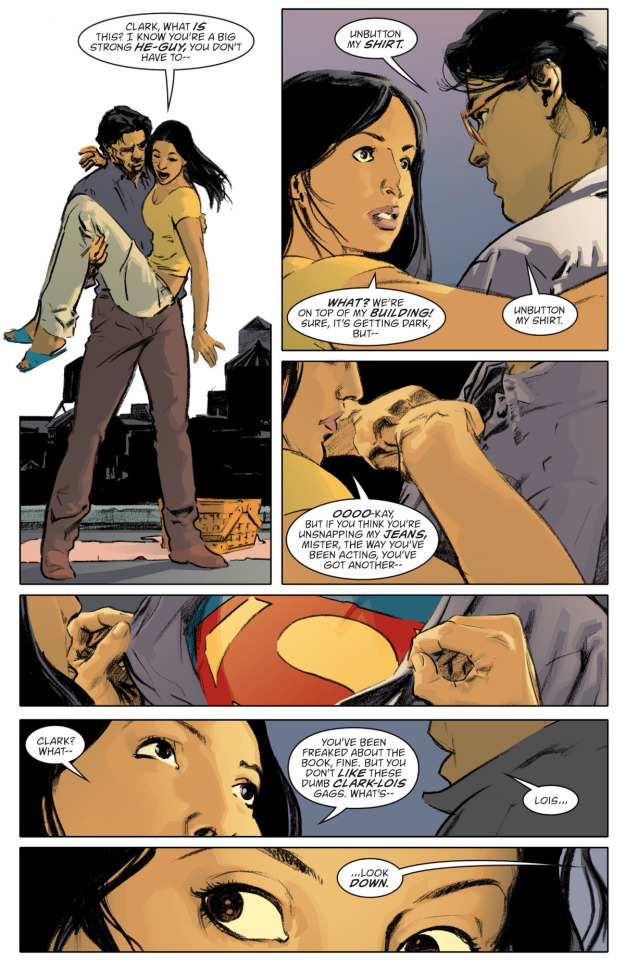
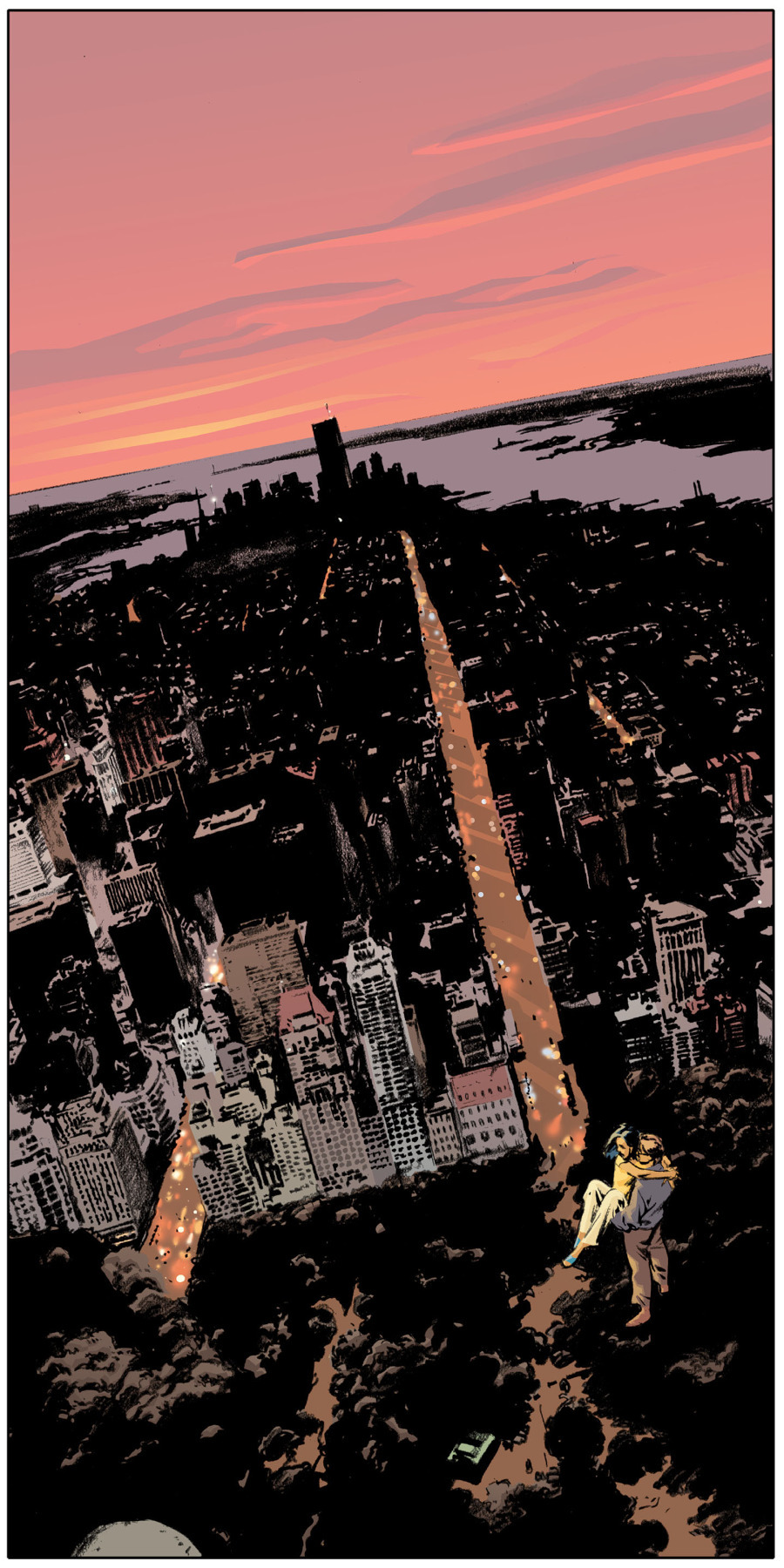
Like Busiek's ASTRO CITY, SECRET IDENTITY is a very introspective story, less interested in action (of which there's relatively little) than in emotion and small observations of life with superhuman abilities. If you're expecting bigger dramatic stakes, you may find the series underwhelming — there are no supervillains or alien invasions, just Clark's reflections on his life and family, from childhood to old age — and the fact that the story never reveals why Clark has powers may frustrate. However, its autumnal wistfulness is appealing if you're in the right frame of mind for it. Immonen's art is gorgeous, and I can't think of a better artist for this story, which straddles the line between a real-world environment and the "heroic realism" of the modern superhero genre.
Fourteen years later, Busiek tried to do a similar story with Batman, BATMAN: CREATURE OF THE NIGHT, with John Paul Leon, which doesn't work nearly as well, wallowing in some uncomfortable attitudes about mental illness and an inappropriate though deliberately ambiguous supernatural element. Leon's art is interesting, but the story leaves a sour taste, and it does not succeed (at all) in doing for Batman what SECRET IDENTITY does for Superman, which is disappointing.
#comics#superman secret identity#kurt busiek#stuart immonen#earth-prime#superman#clark kent#lois lane#my adventures with superman#maws#elliot s maggin#curt swan#al williamson#eduardo barreto#julius schwartz#batman creature of the night#john paul leon#i don't think supernatural elements are necessarily inappropriate for batman#but putting that in a supposedly “real world” story about a man who is definitely mentally ill is in poor taste
48 notes
·
View notes
Text

Happy birthday to Elliot S! Maggin!
8 notes
·
View notes
Text
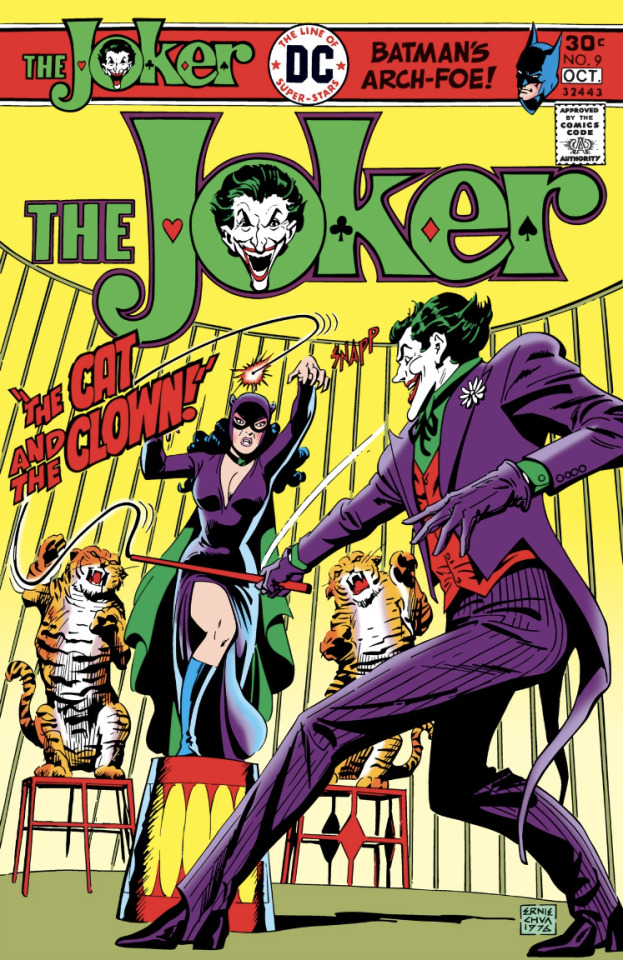
The Joker #9 (1976) by Ernie Chan, Irv Novick & Elliot Maggin
#the joker#catwoman#joker#selina kyle#ernie chan#irv novick#elliot magggin#elliot s maggin#70s comics#70s#dc comics#dc#cover#comics
90 notes
·
View notes
Text
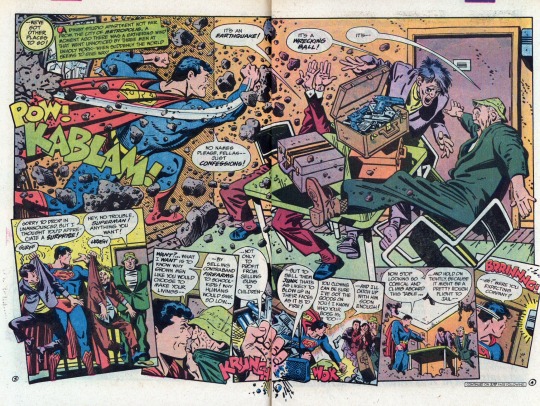
Pages from Superman Annual #9. 1983. Art by Alex Toth and Terry Austin.
46 notes
·
View notes
Text

petition for this to be the lex they use in my adventures with superman
#lex luthor#superman#superman 282#dc comics#bronze age#elliot s maggin#*#look they're basically just making maws into a magical girl anime anyway#i think pre-crisis lex would fit in perfectly
26 notes
·
View notes
Text
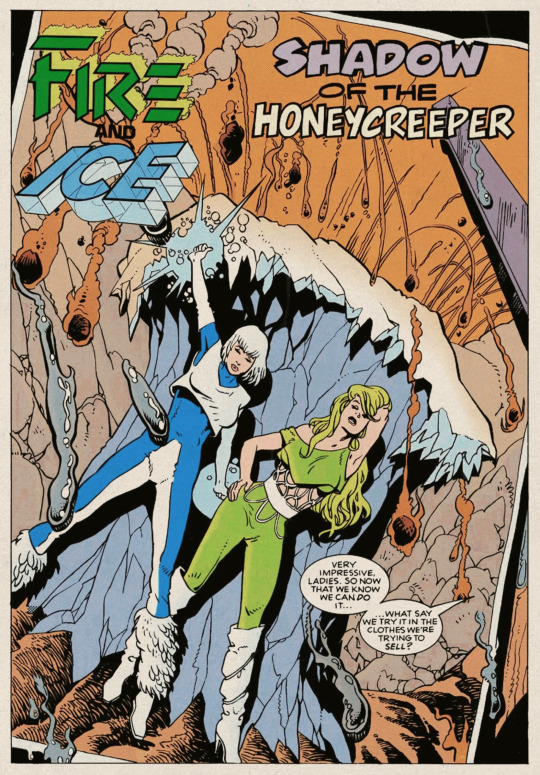

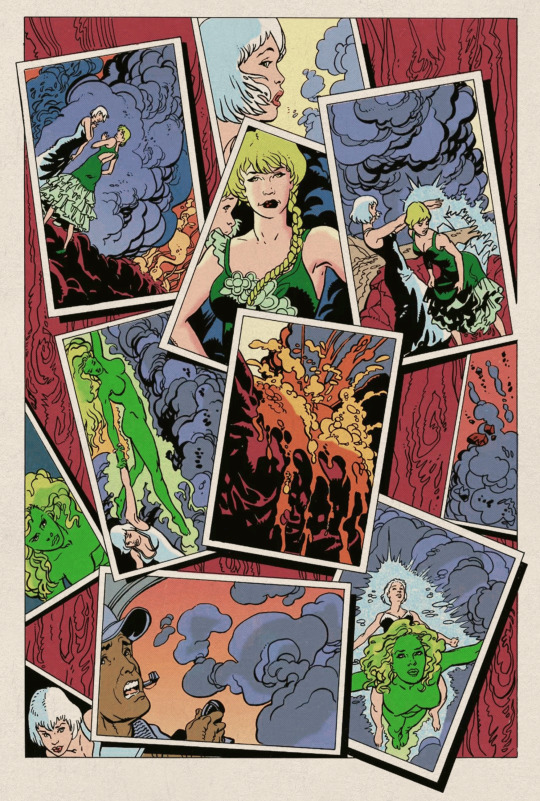
There's a tiny Fire and Ice story in Showcase '93 that's great but ends on a weirdly horny page even for these two.
40 notes
·
View notes
Text
Action Comics 642# (cover date, March 1989) marked the end of the title running as a weekly comic as issue 643# would start publishing monthly with standard size and page count. ("Where There Is A Will...! CHAPTERS I through IV", Action Comics 642#, Comic, Event)
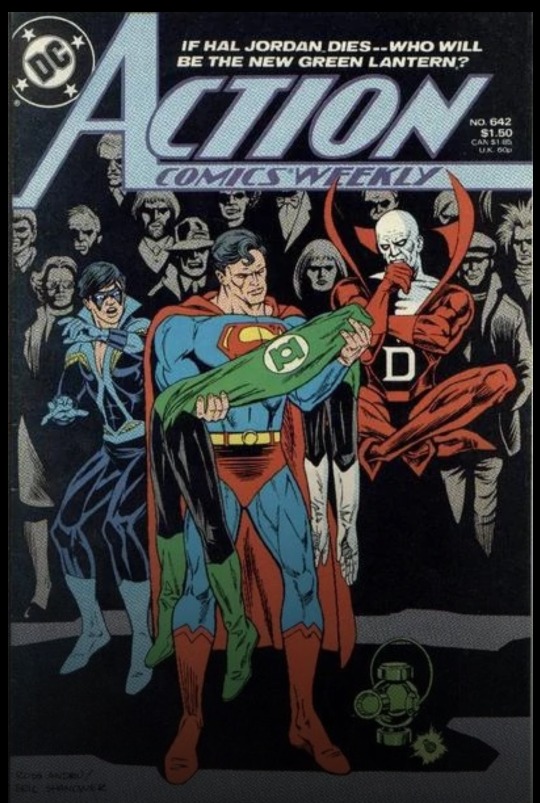
#nerds yearbook#real life event#comic book#dc#dc comics#march#1989#action comics#elliot s maggin#gil kane#steve ditko#curt swan#jim aparo#jim mooney#carmine infantino#green lantern#abin sur#superman#hal jordan#major william easterly#guy gardner#deadman#nightwing#clark kent
19 notes
·
View notes
Text
Review: Superman in the Seventies

Superman is not just my favorite superhero, he’s my favorite fictional character. Yet, comparatively speaking, I haven’t read that many of his comics, and, prior to this collection, I hadn’t read a single Superman comic from the 1970’s. I blame this entirely on DC, who, apparently, have no interest in publishing anything prior to Crisis on Infinite Earths. Even Superman in the Seventies is out of print, however, I managed to find a used copy on Amazon for a decent price and picked it up. Since I’m completely ignorant of Superman in this decade, I can’t say if the comics that they chose for this anthology are a good representation of the character at this time, but since it’s all that I have, it’ll have to do.
There are quite a few charming stories in this volume. I found that the ones I usually liked most were written by Elliot S! Maggin, but there were strong and weak stories from just about every contributor. The writers include a grab-pack of names that most DC readers of this era will be familiar with: Maggin, Cary Bates, Len Wein, and Robert Kanigher, but the biggest name undoubtedly will belong to Jack Kirby, as an issue of his Jimmy Olsen run is included.
The inclusion of that particular issue is a bit of a head-scratcher in that it ends on a cliffhanger, but the following issue is not collected. This actually happens a few times in the anthology, and so it can make for a frustrating reading experience. Again, I’m not familiar enough with this era to name a better stand-alone Jimmy Olsen issue, and it’s entirely possible that there isn’t one. I understand that you can’t not include a Kirby comic in a 70’s Superman collection, which is all the more reason to just create something like the equivalent of the Marvel Epic line (but that’s an argument for another day).

My favorite story might just be the Krypto story by Maggin, although I’ll be the first to admit that I’m a sucker for Krypto. As dated as it was, I also kind of liked the “I am Curious (Black)” where Lois Lane becomes black for a day. If you read it as a 2023 reader, then, yes, it’s very cringe, but if you’re willing to look at in its context, then it’s an interesting and well-intentioned piece of social commentary (although I suspect that, even in 1970, it came across as forced). “Must There be a Superman?” is a classic story that I’m really glad to have finally read and it lives up to its billing. There’s a few weak stories as well; the issue with Terra Man was just dull as he wasn’t a very compelling villain. The preface mentioned that he was an important foe during this decade, but he never came across as menacing. Instead, it felt like someone in the Superman office was a big fan of Clint Eastwood westerns and wanted him in a Superman comic.
The majority of the comics in this collection are drawn by Curt Swan, the definitive Superman artist, so the book looks great. My biggest complaint is that the quality of the paper and the scans don’t do justice to Swan’s art. Not to belabor the comparison, but the Marvel Epics treat the art from this same era with so much more reverence. To be fair, DC had a line of paperbacks and omnibuses (Wonder Woman: the Golden Age vol. 2, Green Lantern: the Silver Age vol. 4, The Brave and the Bold: the Bronze Age vol. 1, etc.) that was comparable in quality to the Epic line, but they never got around to printing any Bronze Age Superman stories, and, for the most part, it seems that the line has been discontinued.
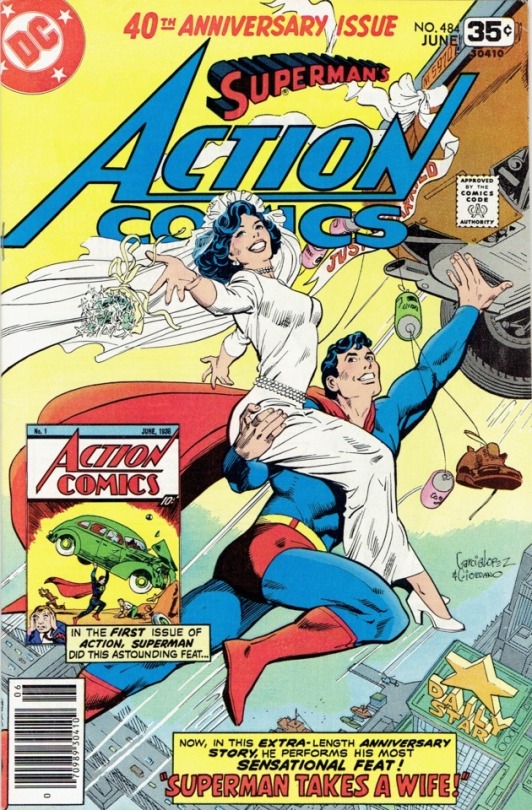
Overall, I have mixed feelings about Superman in the Seventies. The stories themselves were almost always charming and fun even when they ended on an unresolved cliffhanger, but the format is just not the way that I would go about collecting stories from this era. For Superman fans like myself, however, it’s worth owning until a better collection comes along.
#comics#comic review#dc#dc comics#superman#clark kent#lois and clark#lois lane#jimmy olsen#parasite#brainiac#krypto#terra man#lex luthor#shazam#len wein#jerry siegel#joe shuster#robert kanigher#elliot s maggin#curt swan#jack kirby#cary bates#70s comics#70s Superman#action comics
8 notes
·
View notes
Text


Green Arrow and Speedy by John Koch
3 notes
·
View notes
Text
Superman: Miracle Monday 27/27 -Elliot S. Maggin
18
“It was over. He was horribly embarrassed. He was mortified. A big part of him, the mortal part, was killed.”p.153 There were species on Earth whose heartbreak would cause death, now Superman felt he was going to die. News traveled the world before it really hit him, now, as he flew through the sky, he was totally alone. Now, in his Fortress, was the only privacy he had left and listened to it all, all across the world. “Superman was part of the song. He had an instrument in the orchestra of the Earth. He was not, in the overall scheme of things, an outsider.”p.156 He listened to everything work together to make Earth, maybe he bounced to the rhythm too when he came as a baby. He listened to the Oder of Life, wondered what the sound of the Universe would be if he could hear in a vacuum. Somewhere the devil possessed a girl and destroyed what made him feel like a part of the world, but now he realized he had become a part of the world and Order and the demon was disrupting it, so he dove to meet the agent of Hell.
19
By this time CW Saturn had already brought about chaos Superman was starting to clean up the mess. In the upside down PanAm Building (so these are Mxyzsptlk shenanigans) the people sat on light fixtures as Superman made ramps to evacuate them before flipping the building right side up. (he has a soft spot for American pop culture) He wondered what CW Saturn was up to as Kristin was in a park surrounded by fire and a crowd and told Superman to come make him unscary before disappearing in a smoke puff. Superman went to see Lena, but seeing him the sensitive woman shrieked and fainted. (well you were completely useless) When he went to Max Mavin he was expected and was told he doesn’t know much, they can’t exercise CW Saturn, he’s an arch demon. He has to defeat CW Saturn somehow, impossible but heroes thrive on that. If he loses all order is gone starting with Earth and expanding to the Universe until all four dimensions break and revert to before the Creation, it won’t be pleasant for living things. (no shit) Chaos continued for weeks and in it Superman left for Skvrsky.
20
It was another week before he could go back to Clark’s apartment and saw Lois collecting papers into a briefcase, people had already stripped it down to the wall phone. (they even took the elevator button) With Superman busy and seeming uninterested, (he’s wasn’t uninterested he had a crisis and priorities) Lois become his executor but all that was left was old papers, but she still looked for important things. He calls out to her but she’s cold to him for not telling her. ���You’re a stranger. Do you realize that? In all the years I’ve known you, you’ve been a stranger. How do you think that makes me feel?”p.166 He apologizes, he would have told her. Where has he been, saving the Earth, not coming to his friends when he’s in a crisis or even leaving a note to the one he loves. (lady he just lost his safety net and do you not see the shit going on in the world)
Lois asks if she was a part of his disguise to help him act normal. “Was I just somebody to have tagging along on your arm in Time magazine so we puny mortals could think of you as a living, breathing Earthman who just happened to be an immigrant?”p.167 (you knew both personalities do you really think that little of him) Her last boyfriend was a psychologist who always talked about issues and broke up with her saying she had too many. (well he’s not wrong but I also think he was just being douchey) Superman says her ex couldn't handle a strong-willed woman, she tells him to read more psychological journals as she cleans up the mess of her life. He holds her as she cries, she asks if he’s not using some hormones to make her love him, (I’m sure there’s a Superman’s Girl Friend Lois Lane comic with that plot) he wouldn't do that. That’s the point, for years he’s hid this and she can’t trust him anymore, he could have been laughing at her the whole time. (you really don’t know him if you think that okay feel betrayed but don’t accuse him of being a super dick)
There are a lot of discussions between those that are insecure in their love, the purpose is to resolve the issues. Superman wanted to tell her he was unsure he could have her without Clark to live on an equal footing. Lois would say a woman with Superman would have been uninterested in a normal man, on her footing she was born to love Superman, (honey no) if he died as an infant there would be no Lois Lane because there’d be no place for her. (you seemed to be doing well before he got hired at the Planet) They were both afraid of being alone, but unfortunately none of it was said as then the sky lit up in an emergency as CW Saturn rode a carpet of pollution over Metropolis. (so he’s Captain Pollution)
21
Perry (it says White looks like an older Bruce Jenner and I don’t know if this aged like milk or wine because of the irony) says everyone's comparing Kristin to Mxyzsptlk, (I called it) he has magic powers, pulling similar stunts. The current big news was Clark and the demon that possessed Kristin. Perry had trouble believing that, but Jimmy felt ready to explode and feeling the need to do something, he took Lois to a show. (well that’s something I guess) He thought if he stuck around, Perry, who spoke detached about Kristin, he’d do something even more foolish, disagree with him in public. Perry goes on that whatever it is Superman is vulnerable to it and unlike Mxyzsptlk, the girl’s intention isn't fun, (if you could describe what Mxyzsptlk does funny) she tore away his tie to humanity and kept him busy with her antics. Two reasons he hasn't stopped her yet, he wants to know her intentions or he might not know how besides killing her. Jimmy points out she hasn't killed anyone, Clark wasn't an actual murder. (take note of that)
He’s happy he’s Superman, couldn't have happened to a nicer guy, (Jimmy they usually say that because they wanted the bad thing to have happened to the person) he doesn't know why he won't stop by for lunch anymore. He’d call him Superman as they’d have coffee and that’s the problem, if Superman is Clark, he’s among Earthmen, if they knew he’s Superman, he becomes a dangerous personality. (again you guys act like you know nothing about him) If Kristin’s plan is to discredit Superman and push him to insanity who’s to say, when asked if he’s seen him Lois ran out of the office. Perry then speculates if it is really a demon and Kristin is gone one must assume that Superman has no alternative than to destroy the body.
The day before the third Monday in May, a cold front was moving in, Metropolis had no power and food was running low. This would be WGBS’s last broadcast to seventy-eight televisions and Superman was watching one. Four minutes after it Jimmy hated Perry for suggesting the murder of Kristin, hated the logical argument, but Jimmy was the only one that didn't perceive his sorrow. Jimmy hated him until he went into the men’s room and heard Perry throw up in the next stall.
22
A generation still young that grew up in the States and Soviet Union were constantly reminded of the apocalypse that rode along with civilization. “The more intricate and refined life become in the twentieth century, the close rode violence and the specter of mass death.”p.177 The nightmare came then Monday May morning as the generation always knew it would, but instead of a human it was the hand of the devil. Superman was flying for days, dreaming for minutes, (so he can dolphin sleep) the Kents, Krypton, his infant self, wanting to introduce both sets of parents as they shared dinner. Kristin woke him up that she set the holocaust, below was flames and Superman would go with it. Kristin’s distorted laugh followed him as nuclear warheads came alive, CW Saturn's goals were for Superman to allow the world to end, he could just explode every atom, but this was more dramatic.
After CW Saturn set off the bombs Superman went to Pakistan where one of the Oppenheimer nightmares lay, no one knew how to disarm it and no one but Superman knew the reaction began. He crashed through the floors as it began to glow red, he fused the hairline cracks, and lifted it on his back as he flew it out. Forty kilometers above it went off, most of it went into space (well what about the rest of it) then Superman went to his next targets. The psychics faculty at Yale built one under false pretenses and fortunately Superman knew and flew under the campus following the trail of burning nitrogen. He picked up the football sized bomb and thrust it into the mantle. (wouldn’t that cause some seismic trouble) At Cambridge, a professor followed a dream and built a device set off by DNA, it would wipe out all life and could create new at the site of ground zero. The chemical trigger was already farming, not alive by any definition, but the bomb was when Superman threw it at Polaris, the explosion contained within his cape. He disarmed thousands more in order of how close were the targets, within an hour and forty-two minutes. Then he flew to Metropolis and met Kristin on top of the Galaxy Building.
23
Since CW Saturn possessed Kristin, she’s been forced to commit acts of destruction, mayhem pushing the planet near nuclear war and stealing Clark Kent. CW Saturn could not be exorcised and could not rip him from her and yet some still said there’s only one way. “There were those who claimed that the death of this pawn, this innocent child without family or past, was the only way to save the world.”p.184 Superman thought of any other alternatives, so far she has done nothing he couldn't reverse, (hmm) CW Saturn wasn't interested in destroying life but innocence. (hmm) “And if Superman killed Kristin Wells in order to stop her reign of terror, then it was Superman, along with all he stood for, that was destroyed.”p.185 (there it is) He won't kill her, he’ll do what he does to all criminals, follow her to the ends of Creation, couldn't be a nobler mission. Then Kristin’s eyes glowed red and an inhuman voice called out to Superman that he’ll answer to him now.
24
Two days before that Monday there was little news as broadcasting wasn't coming out of Metropolis, mass transit was impossible and people stayed home. Skvrsky walked in the abandoned subway and took off his disguise and Luthor made sure he had the hair in his coat when he entered the abandoned WWII bomb shelter. Luthor met The Shadow in there and gives him the hair for his end of the bargain, he believes he is what he says he is, just satisfied he is bound by contract. He wants to know his game though, what just stops him from destroying the city, Luthor is a powerful soul in this world, but does he remember the one he phased through, just the pain. He was in pain too, but here his power is limited, he doesn't even know where the gateway is. Luthor laughs he has the hair now, so he owes him.
Luthor is given a book on the psychics of alternate universes, Luthor asks what he intends to do with the hair. The Shadow proposes an exchange in information, he’ll answer that question for the location of the gateway, Luthor’s not that interested just curios. Luthor is among the most curios creatures in Creation, he wants to know more, Luthor confesses it’s in New England. The Shadow says he doesn't know what he’ll do with the hair and disappears. Luthor screamed in frustration as Superman flew him back to prison, it was all an elaborate trick, (the book was a rebound copy of Catch 22) now that Superman knew the location he could close it. “Heroes, above all, are people who succeed, they sometimes fail in their immediate goals-staying alive, for example-in order to succeed in their ultimate goals-”-”Ultimately they succeed, and generally this is because they set out on purpose to succeed. They keep control.”p.190 Control of their surroundings and knew what happens next, this trick by Superman was on Saturday and explained what happened on Monday.
25
The demon called out that he won as Superman flew along the rising black pillar. The pillar stopped rising and the Universe stopped heading towards entropy, time froze. With the blackness CW Saturn took his original form, (you know the classic devil) Superman figured his plan was to get him to kill Kristin, but he’s in charge now. CW Saturn says when the conversation ends Kristin will die, her mortal form was overextended. Superman backhands him but he won't waste his power on anger, he tells CW Saturn to undo the damage and why was it Kristin. She was an element most susceptible because she didn't belong. In this instant Superman could do or say no wrong and he wants to know how to save Kristin, it’s at the Center of Short-Lived Phenomena in Skvrsky’s desk. Superman wants Clark Kent back, it would upset the balance to do so, so substitute the memory for Kristin. He owes CW Saturn nothing, so he wants nothing more to do with him, so leave this realm and deal with his master. Four in the afternoon on Monday there was a pause and the shriek of CW Saturn leaving Kristin’s body died in the air. (her body fell to the roof)
26
“Shortly before four in the afternoon on the third Monday in the month of May, the people of the city of Metropolis learned the meaning of joy.”p.195 They had no explanation and there were gaps in their knowledge of the day like they just woke up after a long time. The first thing they saw was Superman flying across the sky, he became a symbol of their joy and felt an unexplainable miracle. The superintendent looked over Kristin’s empty apartment, inexplicably unrented for a year. The superintendent would find a renter tomorrow, right now he felt like throwing a party.
Morgan Edge yelled for Clark who just seemed to hang up on him, but his anger was performative, to his dismay he felt mellow and centered. He found Don Reed at Clark’s desk; he didn't know why he was there either. Outside the window (Clark insisted his office have a window) they could hear people in the streets celebrating, instead of going over the evening news Edge takes Reed out for a martini. As Superman flew overhead the feeling spread in the air communicating one thing, “This day, though, the souls who had subjugated the surfaces of the small planet needed no artificial aides, the newspapers, the radios, televisions, even word of mouth, to know it was a good day.”p.197 The next time Clark would be over the air waves it would be Tuesday, this Monday the entire world population of the city took the day off. “A great miracle had happened here.”p.197
Superman warded of the feeling until his job was done, at the Center of Short-Lived Phenomena and found the notebook in the desk. He collected the chemicals and herbs and flew to the Galaxy Building roof where he made the serum and where the girl no one remembered was. The serum was what Luthor used to cure his heart disease, now it worked on Kristin growing new and stronger tissue. (the FDA rules it unacceptable because it causes mumps and rhesus monkeys but you know I think people will deal with a vaccine for mumps and herpes if it means they no longer have cancer) Awake, Kristin answers his questions, she’s a history student of Columbia in the year 2055, she’ll get a doctorate in 59, (and become a professor) and tells him Happy Miracle Monday. This is the first one people will celebrate, she came to find out why and she remembers everything, at least this historical moment has a happy ending. (so it really is something to celebrate)
There were historians everywhere (hiding in the bushes) to find out but now only she knows, CW Saturn picked her because she was there first a year ago, she’ll at least get some stories for her dissertation. Superman laughed having finally felt the feeling, he tells her what happened with CW Saturn and she teases the future. Jimmy will forget her, for the best, his grandson will marry her great whatever grandmother. (oh good she avoided an I’m my own grandpa situation) Lois won't be something as mundane as the president, (no that would be Luthor) but he already knows that, doesn't he, but they’re always the last to know. He told Kristin how he tricked Luthor (pretty much just his powers and smoke and mirrors) and gives her the lock of his hair, he asks if they’ll ever be friends again, someday. Before Kristin leaves, she thanks him for the wonderful time. (she does regret not meeting John Chancellor)
27
Kristin’s final journal entry, the lock of hair belongs to the university at display in the Superman Museum. The tests reveal it’s not human hair and has the genetic structure Superman is supposed to have, though it is a laboratory reproduction. Her story was believed and it is believed Superman thought it was his, it is not and that's the mystery, no one at the time but Luthor could produce it. Kristin has her own theory and will tell it after she’s reorientated with her period of speech. (the disco slang has to die) She’s writing the entry on her new antique typewriter, with no more discos she took it up as a hobby, who knows where she’ll get more carbon ribbons. (thought to cause cancer in secretaries but that sounds more like correlation not causation) She believes Luthor made the switch thinking the devil needed an artifact to possess Superman’s soul. Why, she cites Hamlet who let Claudius live so he wouldn't enter Heaven. Luthor discovered an afterlife and didn't want to send Superman to Hell. “Superman was then correct in assuming that even where he could not see it, there was good in all life, a good that made it important to treasure that life.”p.205
FIRST
1 note
·
View note
Text

April 1960. In the first 15 years of the Superboy strip, Lex Luthor appeared only once, in a 1957 story in SUPERBOY #59 that showed him as an adult while Superboy was a teenager. This story in ADVENTURE COMICS #271, written by Superman co-creator Jerry Siegel, completely redefined Superman's relationship with Luthor, showing that the two were about the same age (rendering the 1957 story apocryphal), had first meet as teenagers, and for a time were actually friends.
This story says almost nothing about Luthor's family (about which more would be established later), although Luthor is described as "a recent newcomer" to Smallville, and he describes himself as a farmboy. When Superboy first meets him, Luthor is driving a tractor on his family's farm, which proves fortuitous; a Kryptonite meteor lands in the field, immediately paralyzing the Boy of Steel, but Luthor saves him by using the tractor to push the meteor into a quicksand pit. Afterward, Luthor reveals that he has idolized Superboy for years, calling him "the greatest boy in the world," and explains his interest in science, conducting experiments in a laboratory in his family's barn. In gratitude for Luthor saving his life, Superboy builds him "a modern experimental laboratory" and stocks it with "rare chemicals, some still unknown, which I burrowed out of the ground, at super-speed!"

Superboy jokes, "I could easily peek at your formula with my super-vision-- ha, ha-- but I wouldn't do anything to... er... snoop!" Luthor replies, "Of course, you wouldn't... ha, ha!" Superboy then flies away, as Luthor marvels at his good fortune. Then:
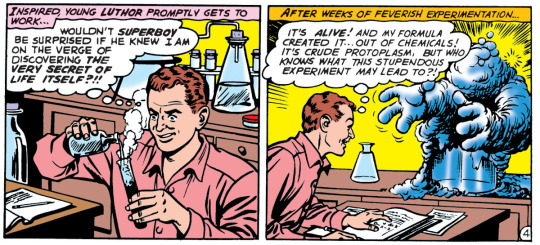
Later recaps of this story (with the notable exception of Elliot S! Maggin's 1978 prose novel SUPERMAN: LAST SON OF KRYPTON) tend to omit or skim over the details of Luthor's experiment, but this is obviously quite significant: Luthor has created a living being, a crude protoplasmic entity. Naturally, he's ecstatic, and grateful to his benefactor for making this possible:
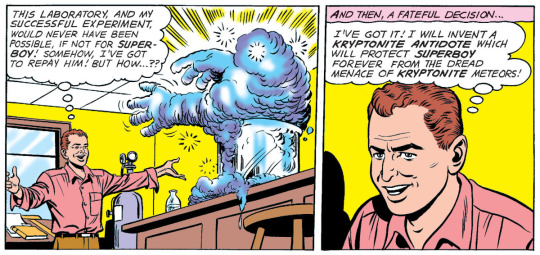
Then, disaster:
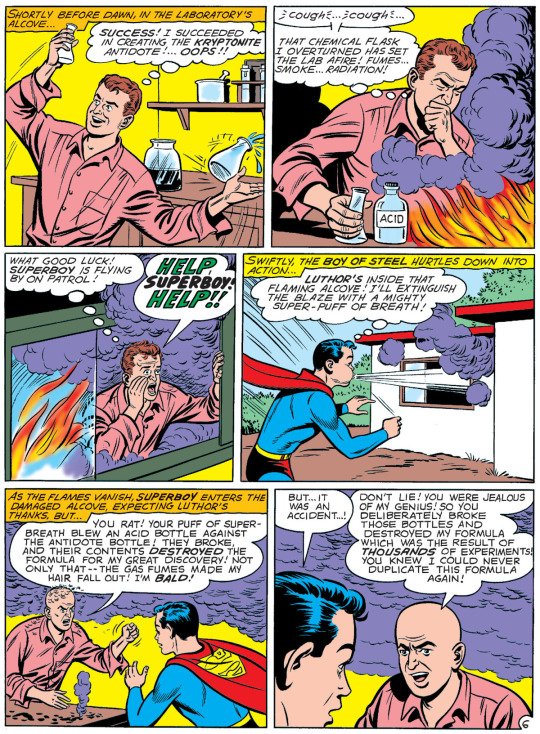
This story is often mocked for attributing Luthor's bitter, violent enmity toward Superman to the loss of his hair, but as these panels make clear, that is expressly not the only thing Luthor is angry about, nor even the most important one:

Superboy's contrition notwithstanding, this is a pretty reasonable thing for Luthor to be angry about: He created a living creature that is now destroyed because Superboy tried to put out a chemical fire by blowing on it. The loss of his hair, aside from the social impact of being rendered permanently bald at the age of 15, is also a reminder of Luthor's more consequential loss. In the LAST SON OF KRYPTON novel, Maggin describes his reaction like this:
He would never grow hair or a beard again. He would laugh or cry or become enraged when pansy philosophers wondered, in the future, whether laboratory life could have a soul. He knew that such life would have no less than the soul of its creator. Lex Luthor chose, from the moment his creation died, to hate the being who had saved his miserable life, who was responsible for the loss of his brown curls and his child. It was the only way he could walk slowly, one millimeter at a time, from the abyss of madness.
Written 18 years later for a different audience, Maggin's prose version is more emotionally charged than Siegel's, but it's mostly quite consistent with the original account, although Maggin doesn't mention the paranoia that's evident in this story. Luthor's insistence that Superboy deliberately sabotaged him out of envy is irrational, but not wholly without basis; Superboy's response to the fire (which he should have immediately known was a chemical fire, since he was the one who stocked the lab) was not at all sensible, and Luthor has paid a heavy price for it.
Luthor pretends to calm down, but he then retrieves the Kryptonite meteor and attempts to use it to kill Superboy, which fails, ironically, thanks to the last dregs of Luthor's Kryptonite antidote. Afterward, Luthor challenges Superboy to arrest him, but Superboy refuses, declaring, "No! You saved my life once! Now we're even!" Then:

(I believe the final panel of this story may have been the first time that Luthor had ever been given a first name; his earlier appearances, and some after this, just referred to him as "Luthor.")
At first blush, Luthor's protoplasmic creation is an odd feature of this story, which is probably why it was often dropped from subsequent accounts. However, it's tempting to see it as a kind of echo of Siegel's own feelings. It was Siegel who had first conceived the idea of Superboy in the mid-1940s, and the character was a significant factor in Siegel and Shuster's first unsuccessful lawsuit against National-DC over the rights to Superman in 1947. According to Les Daniels (in SUPERMAN: THE COMPLETE HISTORY), Siegel had intended Superboy to be quite different, a kind of mischievous super-brat, but editor Whitney Ellsworth hadn't liked that, and had had Don Cameron rewrite Siegel's initial script (for the story published in MORE FUN COMICS #101, pictured below) without Siegel's knowledge or approval, an unwelcome reminder that Siegel and Shuster didn't really have control of their creation. (DC now officially credits the story solely to Siegel and Shuster, although that may reflect the outcome of their most recent settlement with Siegel's family.) After the failure of their lawsuit, Siegel and Shuster were shown the door, although a decade later, editor Mort Weisinger hired Siegel as a freelance scriptwriter for a while. Much of that would probably have happened anyway (Siegel and Shuster were also unhappy that their work was diminishing as National was raking in money on Superman adaptations and merchandise), but Superboy was certainly one of the catalysts.
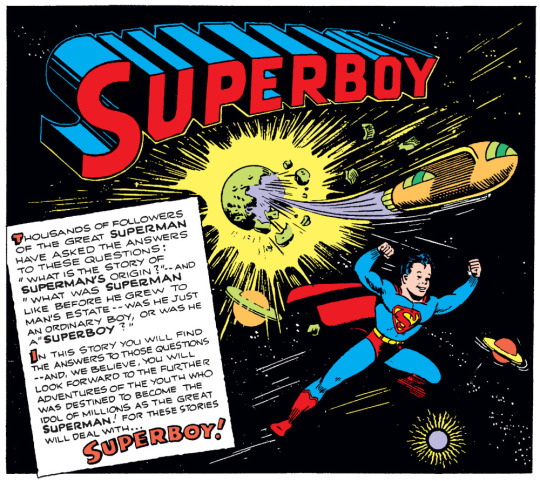
Mort Weisinger, who was notoriously brutal with talent and staff and had a low opinion of many of the writers and artists who worked for him, called Siegel "the most competent of all the Superman writers" and "the best emotional writer of them all." One of the reasons for that was that Siegel put a lot of himself into his stories, and in this respect, his relationship with Superboy was not unlike Luthor's in this story: He had created something crude but vital, with enormous possibilities, and Superboy had effectively destroyed it.
Besides Maggin, one of the few later creators to remember the actual details of this story was, surprisingly, John Byrne, who incorporated it into his origin of the post-Crisis Supergirl. In SUPERMAN #22 (October 1988), the final issue of Byrne's run, Superman learns that Supergirl is really a protoplasmic matrix, an artificial life form created by the Lex Luthor of the Pocket Universe in the image of his world's late Lana Lang. (In the Pocket Universe, Luthor didn't arrive in Smallville until after Superboy was dead, so the accident depicted in the Siegel story never took place, and Luthor completed his protoplasmic experiments in Superboy's own lab.) This is why that version of Supergirl, whose powers included the ability to change shape, was subsequently called "Matrix."
#comics#adventure comics#jerry siegel#al plastino#john byrne#elliot s maggin#mort weisinger#joe shuster#don cameron#silver age superman#superboy#lex luthor#kryptonite#pocket universe#matrix supergirl#pre crisis#byrne's final pocket universe storyline is clever#but thoroughly unpleasant#showing off his knowledge of the pre-crisis stories just to ruin them#apparently not content to just erase them
29 notes
·
View notes
Text
Um, I don't know how to do the descriptions for the blind properly, so here it is in text.
Dear Editor: I am very happy that new and interesting things are happening with Superman. He has passed a turning point in his life, and that is always intriguing.
Superman has always been the most interesting of all the DC characters--so interesting that he has forged a whole new American mythology around himself. I think it is time that National Periodicals be congratulated for making this very definite contribution to the American culture. One sees Superman and his efforts in every phase of American life. Professor Max Lerner, in America as a Civilization, cites Superman as a contemporary folk hero, even as were King Arthur and Robin Hood of another culture, evan as Paul Bunyan and the heroes of the old West in our own culture. Superman is in the media reruns of a television show rake in the residuals twenty years after they were made, and admen use the Superman theme all over newspapers and magazines.
The greatest compliment is imitation. Superman has been satirized and borrowed from for over thirty years. He is a legend and one every bit as rich as the legends of the past. Superman is replete with the values of his contemporaries, and their weaknesses--humanity that will not be admitted to under an exterior of strength--a social conscience--reverence for human life--power and the daring to explore the unknown--the assertion of omnipotence. This is the legend of the Superman. This is the legend whose growth we of our generation are privileged to witness.
Now the legend grows again. The Man of Steel becomes a TV reporter. He loses an old weaknesses and finds a new one. He wrestels with the problems of law and justice. He struggles with the inner conflict of belonging of wanting a place where whe can live with people like himself. He couldn ot cope with the simply human existence he would find in the city of Kandor. He is strength. He is dynamism. He is the man who has moved planets and draws his strength from the awesome powers of a birhgt young star. He has lived with strength and must live with his own kind living forever traversing dimensional barriers as barriers of air learning growing always groping for what is right and of value for himself and for those whom he is charged to protect.
This is Superman. This is the Man of Steel of our legend. In the '50's, whne comics were being blamed for juvenile delinquency and street violence and all manner of social ills, I picked up a Superman comic at a candy story in Brooklyn's East New York. From that magazine that brief encounter came my imagination my own social conscience and reverence for human life my own daring to dream. It is time that I and a generation like me thanked National Periodicals for Superman. He has helped to make us dream -Elliot S. Maggin, Brandeis University, Waltham, Mass. Source: The Metropolis Mailbag, Superman#238 (1971)
A 1971 University Student's thoughts on Superman.
Actually made me a tad emotional. I love seeing historical accounts that echo my experiences. Thanks Elliott S. Maggin.

Source: The Metropolis Mailbag, Superman #238 (1971)
31 notes
·
View notes
Text
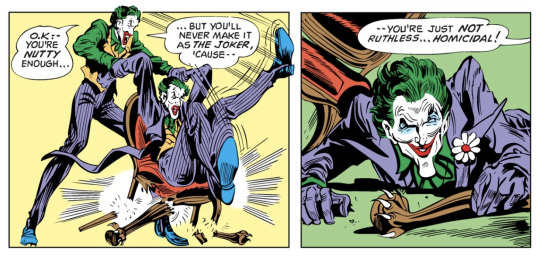
The Joker #9 (1976) by Irv Novick & Elliot Maggin
#the joker#joker#irv novick#elliot magggin#elliot s maggin#70s comics#70s#dc comics#dc#benny springer#comics
7 notes
·
View notes
Text
How a Real Hero Saved the Mild-Mannered Creators of Superman, by Elliot S. Maggin
The Village Voice, January 19, 1976. Article credit: https://elliot.maggin.com/.
Transcription below.

Jerome Siegel and Joseph Shuster, the 61-year-old men who at the age of 17 created Superman, finally settled their decades-old dispute this past December with the publisher of Superman comics, currently owned by Warner Communications. The story that remains to be told is how that settlement came about and what it means to the multimillion dollar comics industry based in New York.
In 1938, with their first publication of a Superman story, Siegel and Shuster turned what had been a medium-fair idea—the comic book—into a vast enterprise employing thousands and extending its merchandising arms into paperback series, television shows, feature films, film serials, and promotional gimmicks for magazine ads and for private enterprises from gas stations to hamburger chains.
Because I am one of the current writers of Superman, Jerry Siegel and Joe Shuster gave me, among other things, a graduate school education and an audience for my writing that would not be equaled in size if someday I were to write a best-selling novel.
Mr. Siegel, Mr. Shuster, thank you.
Warner Communications has agreed to pay Siegel and Shuster $20,000 each per year for life, or for a minimum of 10 years should they die before that time. Warner has also agreed to provide them with unlimited medical coverage and to provide an annual stipend for their wives (Shuster is not married) and children after their deaths.
But possibly the most significant aspect of the settlement, beyond the fact that two men will now be able to grow old with dignity and security, is the return of the words, “Created by Jerry Siegel and Joe Shuster,” to the Superman logo.
* * *
Siegel and Shuster are both slight, soft-spoken and hardly assertive gentlemen. In 42 years of trying, they were unable to secure any significant hold on a child whose popularity took off faster than a speeding bullet. Over recent years their attorneys have cautioned them against discussing their lingering case in public for fear of hurting chances of a settlement. This past October, with news that National Periodicals, Superman’s publisher, had been paid $3 million for rights to a Superman movie, Siegel and Shuster’s patience was at an end.
Siegel sent a nine-page, single-spaced letter to newspapers, magazines, and everyone in the comics field he could think of who was associated with his character. The letter accused Jack Liebowitz—then the owner of what was successively called Detective Comics, Superman Inc., Superman-DC Publications, and National Periodical Publications—of misrepresentation and bad faith. For years, according to Siegel, Liebowitz paid Siegel and Shuster the highest page rate in town and withheld from them any information on circulation and profits. He discouraged loose talk of radio and television rights to the character, and when Siegel got upset enough to demand a raise, Liebowitz threatened to fire him and Shuster.
Toward the close of the 1940′s, they left, at the start of a succession of court cases which eventually determined that Siegel and Shuster did in fact create Superman, but that National Periodicals owned him.
Years later, when a desperate Joe Shuster took a job as a hand-delivery messenger, he happened to deliver a package to National Periodicals’ offices. Liebowitz called his former employee into his office, closed the door and told him that it was embarrassing to have the creator of their top money-maker doing menial tasks in plain view. Liewbowitz gave Shuster $100, bought him an overcoat, and ordered him to quit his job, which he did.
When Warner Communications bought National Periodicals in the mid-’60s Liebowitz became a member of the big corporation’s board of directors, where he still sits.
Jay Emmett, the Warner vice president in charge of the Siegel and Shuster matter, began his career as a licensing agent employed by the company owned by his uncle, Jack Liebowitz. It was one of young Emmett’s jobs to sell the Superman character and insignia to toy manufacturers, animation studios, advertising agencies, anyone who thought a profit could be made from this particular symbol of American popular culture. According to one early associate, when Emmett suffered a heart attack in his thirties, a psychologist told him to stop working for his uncle. Emmett is now earning, by one account, $195,000 a year at Warner, and in light of his handling of this highly publicized matter, his future is even brighter than it was a month ago.
The principal in the Siegel and Shuster problem who is probably most responsible for its coming to a head, however, is an extraordinarily talented commercial artist named Neal Adams. Adams began his rise in the cartooning field at 21 years of age 13 years ago as the artist for the syndicated Ben Casey comic strip. He has served as president of the Academy of Comic Book Arts and he has won at least once every annual award given by that organization for which an artist is eligible. He can draw as well as anyone in town. He is president of Continuity Associates, a studio which employs, among others, a great number of promising young commercial artists who land in New York looking for work. Adams is very good at finding it for them.
In October, soon after reading the letter from Siegel, Adams flamoyantly called to attention the 10 or so artists, clients and hangers-out in his studio at the time and said, “Three months from today this Siegel and Shuster thing is going to be resolved once and for all.” Then he called Jerry Siegel in California.
On December 23 I rode with Jerry Siegel and Joe Shuster up the elevator to the office of their new attorney, Edmund Preiss. Both were obviously flushed with the sudden security of which hard-working men in their sixties dream. Siegel said, “I suppose this sort of thing couldn’t happen now. They must give rights to characters people create in the comics these days.” Both men were startled to learn that with regard to artists and writers, the comic book business has not changed significantly since they left it. The current setup of the comic book industry would do King John of England proud. Recognition of one or two of the vassals could change that.
There has never been a well organized guild for comic book writers or artists. Work is done on a freelance basis, and freelancers are paid—quickly and reasonably well—at a rate determined for each of them individually. Neal Adams is one of the few people associated with the comic book industry who can afford to buck the status quo. He’s in demand by advertising companies for story boards, by production companies for film posters, by slick magazines for illustrations. So for a few weeks Adams regularly missed deadlines to talk on the phone about Jerry Siegel and Joe Shuster.
Once he found out, in October, that Siegel and Shuster would be satisfied with a financial settlement—rather than ownership of their character for which they gave up their financial arrangement years ago—Adams went about drumming up public opinion in favor of the pair. Adams once told me that his greatest talent, one he has tried very hard to suppress on occasion, is for finding the weakest point in an individual’s psyche and exploiting it. He seems to have known instinctively that the most vulnerable aspect of a major corporation like Warner is its public image.
At some point he discussed a hypothetical settlement for $30,000 with Jay Emmett. A few days later he finagled a ride from California to New York for Jerry Siegel from ABC so that Siegel could appear with Shuster, who lives in Queens, on Howard Cosell’s Saturday Night Live show. While Siegel was in town, Adams scared up appearances for the pair on other television shows including interviews by CBS News and for the local news of all three network affiliates. On the Tomorrow Show Siegel and Shuster insisted that Adams appear with them and on the air Siegel declared that Adams was their official spokesman. The television stations took turns paying Siegel’s hotel bills. After a week, when Siegel returned home, National Periodical Publications was no longer answering mail from the Academy of Comic Book Arts on the ground that Adams had once been president of it, and Jay Emmett was anxious to settle.
Getting the creators’ names back on the character was the hardest part of the settlement. By the middle of December Emmett was willing to put Siegel and Shuster’s names on Superman and Action Comics, but not on the movie, on any other comic books, or magazines on which the character is featured, or on any media use of Superman. Siegel and Shuster were willing to settle for that, and for their sakes, Adams declined to push further. The Monday a week before Christmas an agreement was made, in a conference call among all the principals, which did not include Siegel and Shuster’s byline.
That Tuesday Adams wrote up a press release explaining that as a creator and speaking as a past president of the Comics Academy, he was annoyed. Jerry Robinson, a former president of the Cartoonists’ Society and one of the earliest artists on Batman, agreed to lend his name to the statement, That day Adams read his statement over the phone to everyone he talked to, including CBS News, the Toronto Star, and 10 or 15 newspeople. The next morning Adams left for Florida and left no phone number at which he could be reached.
Adams told everyone to whom he talked to ask Jay Emmett for an explanation as to why Siegel and Shuster’s names would not be coupled with their character. For the next several days Emmett was swamped with calls which left him convinced that any favorable publicity for Warner would be soured by the exclusion of the creators’ byline. By the time Adams got home on Monday Siegel and Shuster’s names were permanently linked with the name of Superman.
* * *
Those of us associated with the comic book industry have known for a long time that Jerry Siegel and Joe Shuster were involved in a legal battle for rights to the character they created. A year ago, before I met them, I wrote a story for National Periodicals about a man named Joey Jerome, stranded on a desert island for 30 years, who created a superhero in his own mind, not realizing that in the course of that time Superman had come to earth and grown up. When I wanted to dedicate the story to Siegel and Shuster I was told that National does not publish their names.
For the past several years Jerry Siegel has been earning $7000 a year as a mail clerk in Los Angeles. During that same time Joe Shuster has gone legally blind, and has not held a job. When they were signing their contract with Warner Communications in Edmund Preiss’s law office, Shuster realized it was the first time in 15 years anyone had asked for his social security number. Several years ago, when a policeman offered to buy Shuster lunch because he looked emaciated, the officer found out that he had just walked into a coffee shop with one of the creators of Superman. He asked Shuster for a sketch and Shuster obliged. Then he did the same for the waitress, and for each of 10 or 15 kids who walked into the shop. Joe Shuster sat hungry in the coffee shop sketching pictures of Superman for two hours before someone realized he had not eaten in days.
Watching him walk out of Preiss’s office, Neal Adams said of Shuster, “He’s such an incredibly kind man.”
“Kindness hasn’t done well by him,” I answered in my punkiest tone. “Maybe he should’ve been more like us.”
CBS took pictures of Siegel and Shuster signing their agreement in Preiss’s office, and the next day NBC took pictures of Shuster depositing his check for $17,500 which Warner gave each of them to pay off their debts. The night before Christmas Eve, Jerry Robinson gave a party in their honor. Years of silence about their case kept them from attending comics fans’ conventions, from wandering into publishers’ offices and running into old friends and associates, from joining the Academy of Comic Book Arts or the Cartoonists’ Society. Robinson’s party reintroduced them to their past.
Unfortunately, people in creative fields tend to have characters more like Joe Shuster’s than Neal Adams’s. Those of us who heard of Siegel and Shuster before Adams pushed them to celebrity always supposed that their case would go on forever or until they both died, and then maybe they would be recognized for their contribution to American popular culture. By an interesting twist of fate they are able to enjoy that recognition now, and someday someone with an advanced degree might even call them great men.
* * *
Meanwhile it has taken the pitiable condition of two men of this stature to bring attention to the fact that an industry based in New York City has been allowed to remain in such an antediluvian state. A writer or artist creating a character or a concept for a comic book publisher has no rights to his concept once he accepts a check for it. It says so on the backs of the checks. A publisher can and does reprint stories written in previous years without any compensation to the writer or artist of those stories. Artwork submitted as part of a story for a specific purpose can even be lifted by the publisher to be used and reused for promotional or merchandising purposes.
Maybe the disposition of Jerry Siegel and Joe Shuster’s problem will bring about a change in some of these areas. Maybe not.
What is certain is that neither Siegel nor Shuster bears any malice toward National Periodical Publications or Warner Communications, which, after all, acted in good faith and exceeded its legal obligations in the agreement. They are both very happy, and so, one would suspect, are the officials of Warner Communications, which has made roughly twice as much money on Superman in the past 12 months than Siegel and Shuster will be paid if they both live to be 100.
#superman#jerry siegel#joe shuster#siegel#shuster#neal adams#elliot s maggin#maggin#dc#dc comics#warner bros#village voice
1 note
·
View note